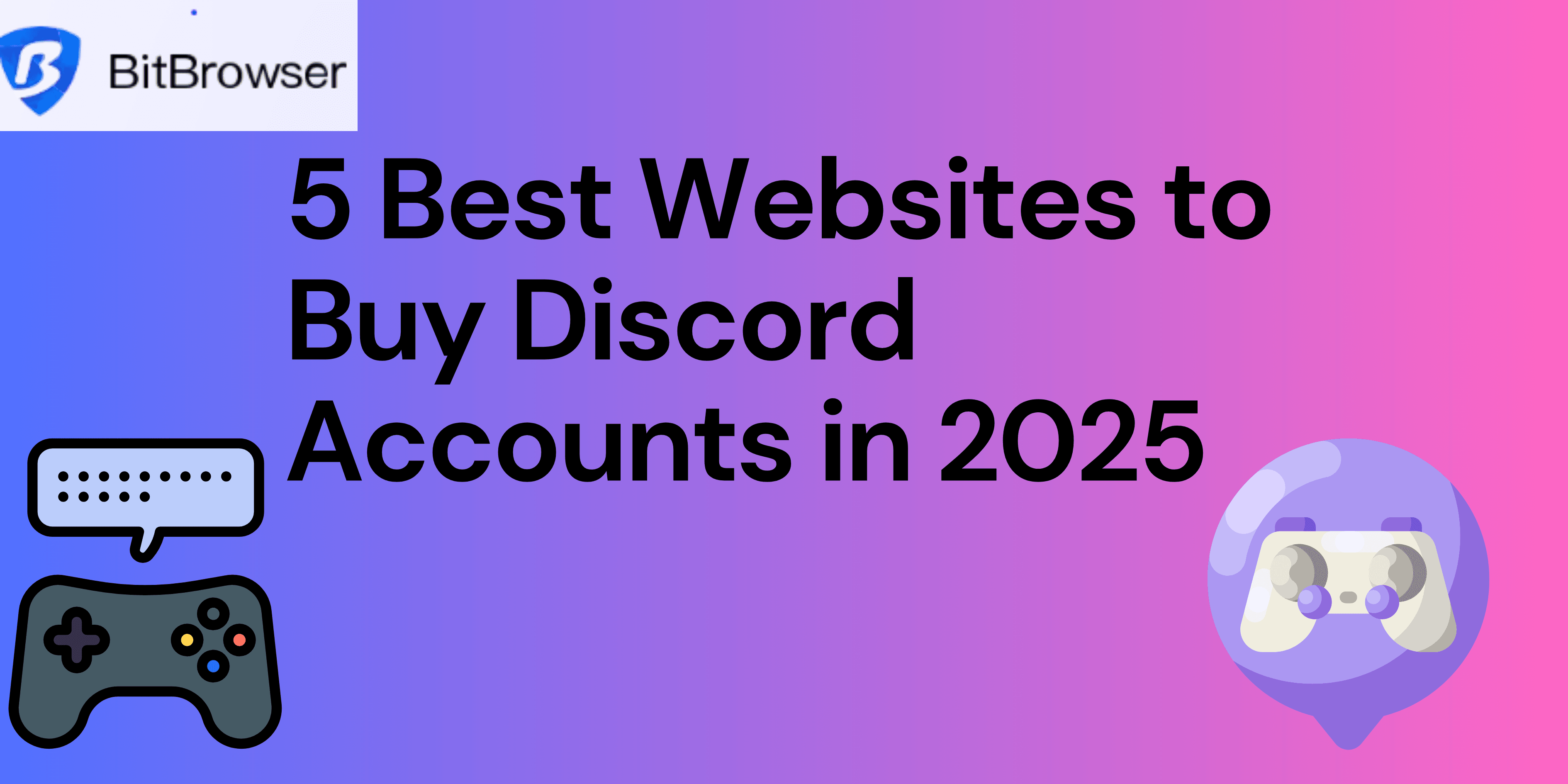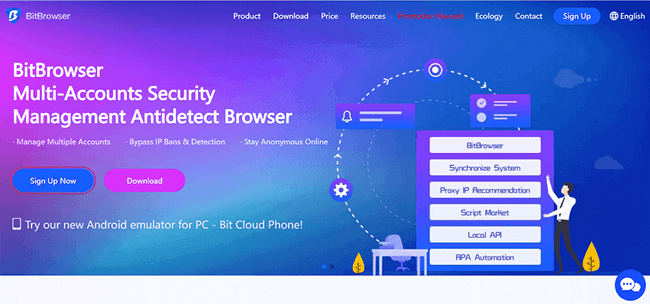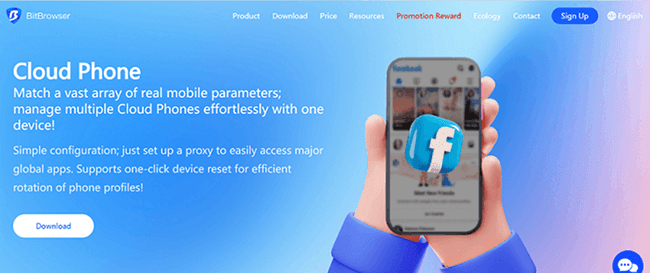
Hot Picks
How to Use BitBrowser for Multiple Bets?

Hot Picks
How to Automate Social Media Accounts
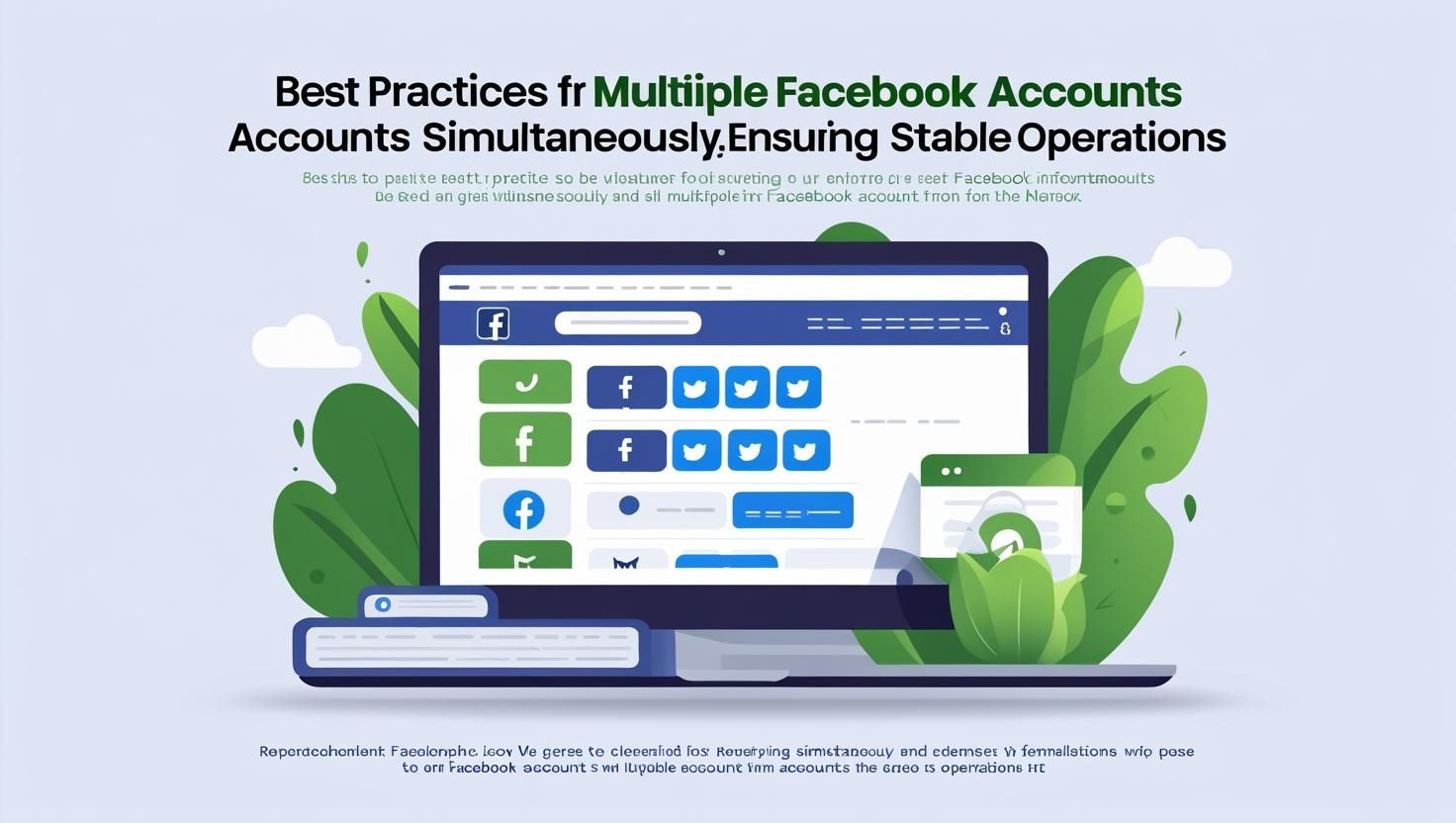
Hot Picks
How to Ensure Stable Facebook Operations When Managing Multiple Accounts
Anti-Detect Browsers vs. VPNs: Which Is Better For Your Business?
Time: 2024-10-14 10:15 Click:
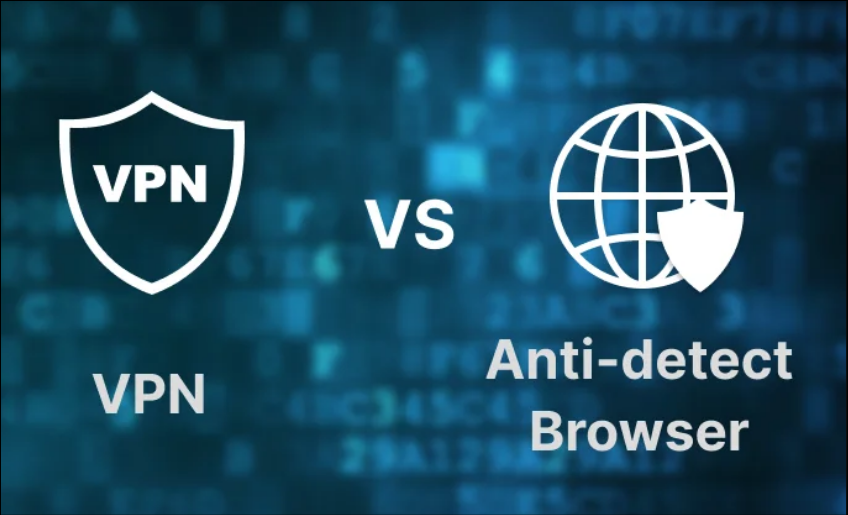
In today’s digital world, online privacy and security has become a major concern for businesses. With the growing number of data leakage and identity theft, businesses are faced with a important decision: Which one should they choose, anti-detect browsers or VPNs?
Both Virtual Private Networks (VPNs) and Anti-Detect Browsers are technologies that offer some of the most effective means to enhance a business's online privacy, security, and anonymity.
Nevertheless, having a comprehensive understanding of how these technologies differ is crucial for choosing the right option according to your specific needs. By the end of this article, you’ll have a clear understanding of anti-detect browsers and VPNs, their differences, features and when to use each of them.
What Are Anti-Detect Browsers?
Anti-detect browsers are specialized web browsers designed to prevent websites from identifying or tracking users based on their browser fingerprints. Each browser profile can be configured with unique settings, including user agents, cookies, fingerprints, fonts, and more, making it appear as if each profile comes from a different device and user.
What Are VPNs?
Virtual Private Networks, or VPNs are secure tunneling protocols that encrypt your internet connection and route your traffic through a remote server, effectively hiding your IP address and location from the websites you visit. VPNs provide privacy and security by making it difficult for third parties, including ISPs, hackers, and governments, to intercept or monitor your online activities.
Comparing Anti-Detect Browsers and VPNs
While both anti-detect browsers and VPNs are intended to offer anonymity and security for online businesses, there exist crucial distinctions between the two that can influence their effectiveness.
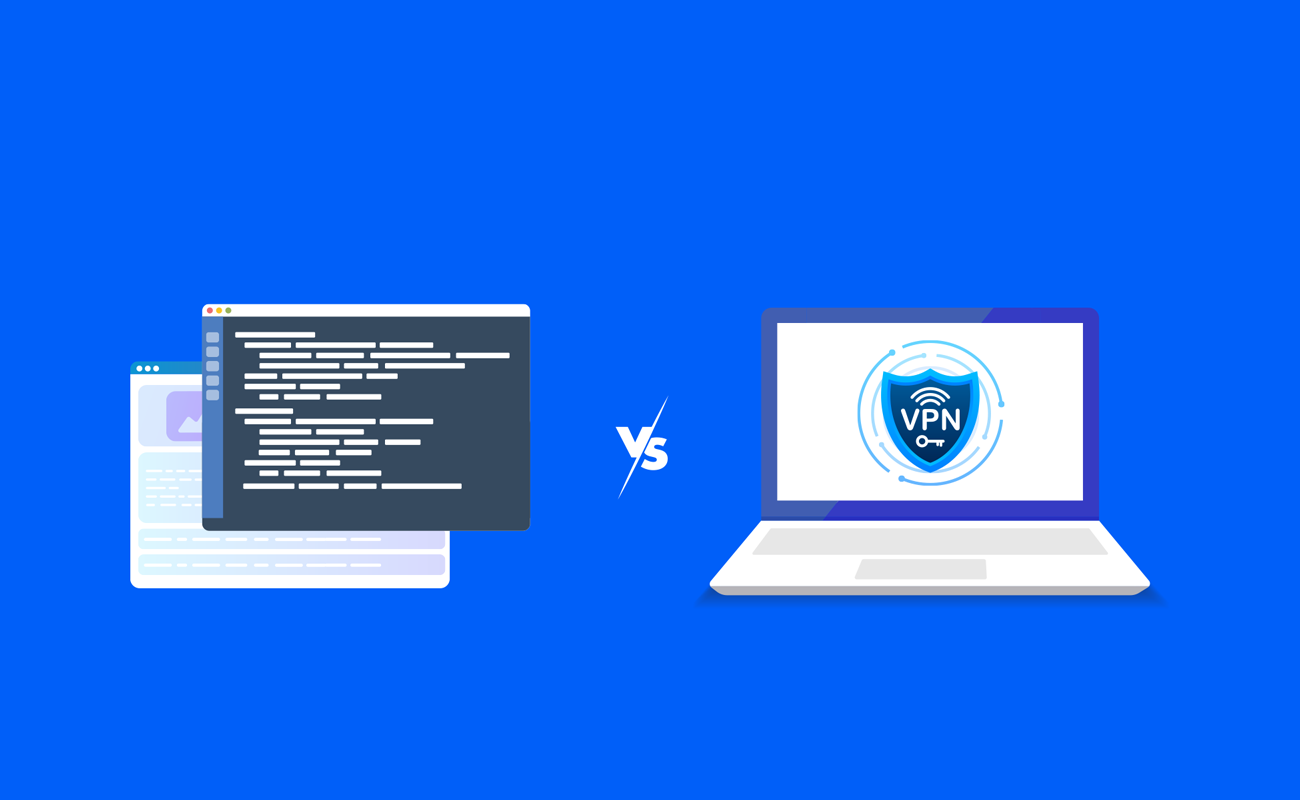
1. Privacy & Anonymity: Both tools offer privacy benefits, but in different ways. VPNs mask your IP address and encrypt your traffic, while anti-detect browsers prevent websites from identifying you based on browser fingerprints. For ultimate anonymity, using anti-detect browsers can be effective.
2. Geo-Blocking: VPNs excel at bypassing geo-restrictions by connecting you to servers in different locations. Anti-detect browsers, on their own, do not change your IP address or location, but hide or mask them, it can be used in conjunction with VPNs to further enhance anonymity.
3. Convenience & Ease of Use: VPNs tend to be more straightforward to set up and use, requiring minimal configuration. Anti-detect browsers, while powerful, can be more complex to manage, especially when creating and managing multiple browser profiles.
4. Cost: The cost of both solutions varies widely, depending on the provider and features offered. Some VPNs offer free plans with limitations, while anti-detect browsers are often more expensive due to their specialized nature.
BitBrowser, as one of the best anti-detect browsers ever, has a free trial plan for new comers and its pricing plans begins at $10 monthly. You’ll get a lot for your subscription fee:
1. Browser profile syncing across devices
2. Data encryption
3. Digital fingerprint control features
4. Multi-account management
5. RPA automation

1. Privacy & Anonymity: Both tools offer privacy benefits, but in different ways. VPNs mask your IP address and encrypt your traffic, while anti-detect browsers prevent websites from identifying you based on browser fingerprints. For ultimate anonymity, using anti-detect browsers can be effective.
2. Geo-Blocking: VPNs excel at bypassing geo-restrictions by connecting you to servers in different locations. Anti-detect browsers, on their own, do not change your IP address or location, but hide or mask them, it can be used in conjunction with VPNs to further enhance anonymity.
3. Convenience & Ease of Use: VPNs tend to be more straightforward to set up and use, requiring minimal configuration. Anti-detect browsers, while powerful, can be more complex to manage, especially when creating and managing multiple browser profiles.
4. Cost: The cost of both solutions varies widely, depending on the provider and features offered. Some VPNs offer free plans with limitations, while anti-detect browsers are often more expensive due to their specialized nature.
BitBrowser, as one of the best anti-detect browsers ever, has a free trial plan for new comers and its pricing plans begins at $10 monthly. You’ll get a lot for your subscription fee:
1. Browser profile syncing across devices
2. Data encryption
3. Digital fingerprint control features
4. Multi-account management
5. RPA automation
When to Choose Anti-Detect Browsers over VPNs?
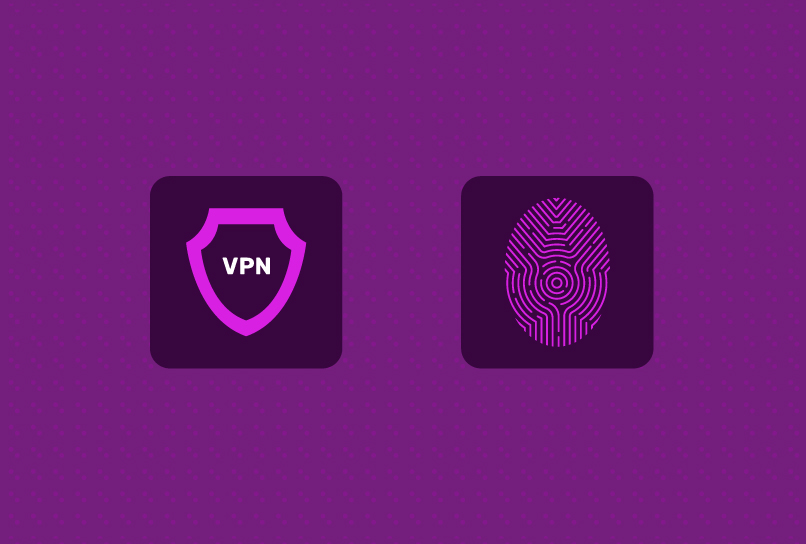
After comparison of anti-detect browsers and VPNs, you may feel confused when choosing the right one. In fact, anti-detect browsers are more powerful than VPNs as they provide:
1. Anti-Fingerprinting
Using an anti-detect browser can help you prevent browser fingerprinting. Without it, your ISPs and other parties, for example, the websites you visited, could track you.
Anti-fingerprinting means that you can manage multiple accounts without being detected or banned by platforms. Consequently, you can run more ads to reach potential clients and quickly scale your marketing and sales funnels, facilitating faster business growth.
2. Multi-Accounting
If you manage multiple online accounts and need to keep them all separate and undetected, an anti-detect browser is invaluable. It allows you to create unique browser profiles with distinct fingerprints, making it impossible for websites to link your activities across different accounts. This feature is not inherently offered by VPNs, which typically only mask your IP address but not your browsing fingerprint.
3. Ad Blocking
Anti-detect browsers block tracking technologies that collect information regarding your location, browsing behavior, preferences, and so on. They also remove advertising code from your browser. This safeguards the privacy of you and your employees and helps you avoid disruptive ads.
4. User-Agent Switching
Anti-detect browsers are capable of altering your browser settings by using user-agent switching. This includes changing your location, time zone, language, browser version and so on. By doing this, it enhances your privacy and also enables you to bypass geo-restrictions.
4. Higher Level of Anonymity
Anti-detect browsers offer a higher level of anonymity compared to VPNs. By providing advanced features like anti-fingerprinting, user-agent switching, and multi-account management, they ensure that your online activities are practically impossible to trace back to you. If you're engaging in highly sensitive operations or simply value your privacy above all else, an anti-detect browser is the way to go.
5. Better Protection for User Data
Anti-detect browsers often provide additional security measures to add an extra layer of security for your private information. While VPNs can encrypt your internet traffic and hide your IP, they might not be as effective at blocking malicious ads or preventing data breaches that occur through browser vulnerabilities as anti-detect browsers do.
6. Improved Customization
Anti-detect browsers offer a higher degree of customization and flexibility than VPNs. You can configure your browser's settings, including user-agents, cookies, language preferences, and more, to mimic the behavior of different devices or regions. This capability is crucial for tasks that require detailed manipulation of your online identity, such as social media management and SEO testing.
1. Anti-Fingerprinting
Using an anti-detect browser can help you prevent browser fingerprinting. Without it, your ISPs and other parties, for example, the websites you visited, could track you.
Anti-fingerprinting means that you can manage multiple accounts without being detected or banned by platforms. Consequently, you can run more ads to reach potential clients and quickly scale your marketing and sales funnels, facilitating faster business growth.
2. Multi-Accounting
If you manage multiple online accounts and need to keep them all separate and undetected, an anti-detect browser is invaluable. It allows you to create unique browser profiles with distinct fingerprints, making it impossible for websites to link your activities across different accounts. This feature is not inherently offered by VPNs, which typically only mask your IP address but not your browsing fingerprint.
3. Ad Blocking
Anti-detect browsers block tracking technologies that collect information regarding your location, browsing behavior, preferences, and so on. They also remove advertising code from your browser. This safeguards the privacy of you and your employees and helps you avoid disruptive ads.
4. User-Agent Switching
Anti-detect browsers are capable of altering your browser settings by using user-agent switching. This includes changing your location, time zone, language, browser version and so on. By doing this, it enhances your privacy and also enables you to bypass geo-restrictions.
4. Higher Level of Anonymity
Anti-detect browsers offer a higher level of anonymity compared to VPNs. By providing advanced features like anti-fingerprinting, user-agent switching, and multi-account management, they ensure that your online activities are practically impossible to trace back to you. If you're engaging in highly sensitive operations or simply value your privacy above all else, an anti-detect browser is the way to go.
5. Better Protection for User Data
Anti-detect browsers often provide additional security measures to add an extra layer of security for your private information. While VPNs can encrypt your internet traffic and hide your IP, they might not be as effective at blocking malicious ads or preventing data breaches that occur through browser vulnerabilities as anti-detect browsers do.
6. Improved Customization
Anti-detect browsers offer a higher degree of customization and flexibility than VPNs. You can configure your browser's settings, including user-agents, cookies, language preferences, and more, to mimic the behavior of different devices or regions. This capability is crucial for tasks that require detailed manipulation of your online identity, such as social media management and SEO testing.
How Can Anti-Detect Browsers Help Your Business?
Utilizing an anti-detect browser provides significant advantages for your business activities and online presence, which include:
1. Market Research: You can use anti-detect browsers to gather data from multiple accounts or locations without being flagged as a bot or spammer.
2. SEO & Advertising: Anti-detect browsers enable you to manage multiple ad campaigns or test different strategies without affecting your main account's reputation.
3. Data Privacy & Security: Anti-detect browsers ensure that sensitive business information is protected while traveling or working remotely.
4. Access to Global Markets: Using anti-detect browsers, you can bypass geo-restrictions to reach customers in different regions and expand your business's reach quickly.
1. Market Research: You can use anti-detect browsers to gather data from multiple accounts or locations without being flagged as a bot or spammer.
2. SEO & Advertising: Anti-detect browsers enable you to manage multiple ad campaigns or test different strategies without affecting your main account's reputation.
3. Data Privacy & Security: Anti-detect browsers ensure that sensitive business information is protected while traveling or working remotely.
4. Access to Global Markets: Using anti-detect browsers, you can bypass geo-restrictions to reach customers in different regions and expand your business's reach quickly.
Conclusion
Choosing between anti-detect browsers and VPNs depends on your specific needs and goals. In many cases, combining both tools can provide the ultimate level of protection and anonymity, allowing your business to operate more freely and securely online. For example, you can use BitBrowser with OpenVPN for an extra layer of protection.

 Multi-Account Management
Multi-Account Management Prevent Account Association
Prevent Account Association Multi-Employee Management
Multi-Employee Management
